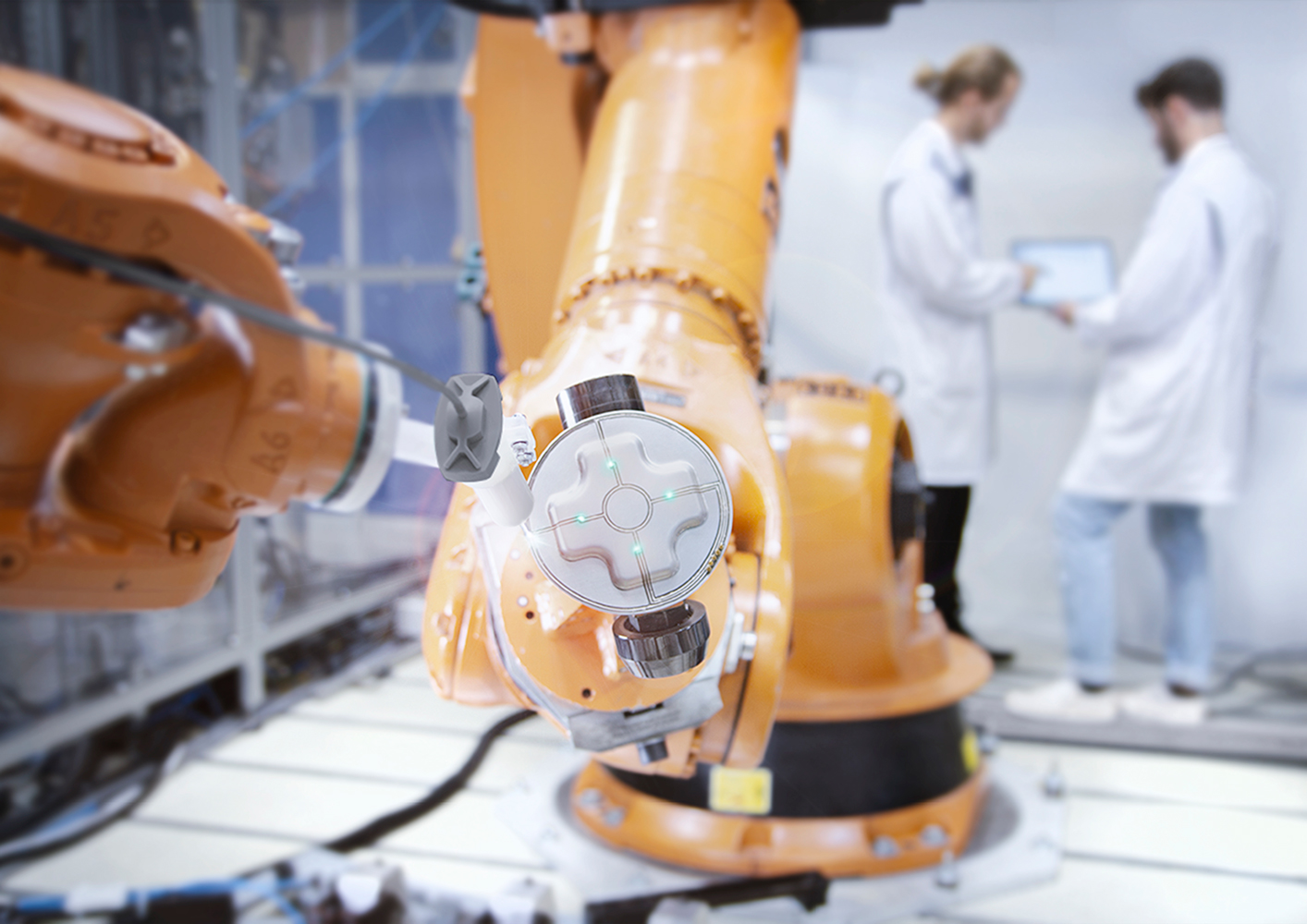Production in Transition
Today, production must increasingly respond to the diversity and customization of product forms and functions. At the same time, it is essential to continuously reduce CO2 emissions and achieve resilient value creation. To meet these challenges, highly flexible and cost-efficient production technologies are needed, which also enable an increase in the functional density of components.
We are researching methods and technologies to achieve flexible and quantity-independent productivity, which – for example, through the automated manufacturing of wiring harnesses or the printing of specific sensors – results in simplified logistics, weight reduction, and the elimination of assembly and installation steps.
Function Application
By developing special end effectors for the automated assembly and mechanical connection of wires, strands, cables, fibers, and hoses on planar or multiply curved components, the creation of complete wiring sets (such as wiring harnesses), heating-cooling circuits, and near-actuator sensors on complex components becomes possible.
Function Integration
By researching processes that enable functional integration into the interior of a component, complex structures with integrated sensor-kinematic-actuator systems are realized, which are used, among other things, for wearables, orthoses, robot structures, and shape morphing. The developed methods and technologies find broad application across industries and can be used, for example, in automotive, consumer products, aerospace, and medical products.
The scientific work is characterized by a high degree of interdisciplinarity and encompasses the spectrum from material and process development, holistic modeling, the construction of functional prototypes, to the development of series-like components or integration processes and their evaluation through metrological characterization.
 Fraunhofer Institute for Machine Tools and Forming Technology
Fraunhofer Institute for Machine Tools and Forming Technology